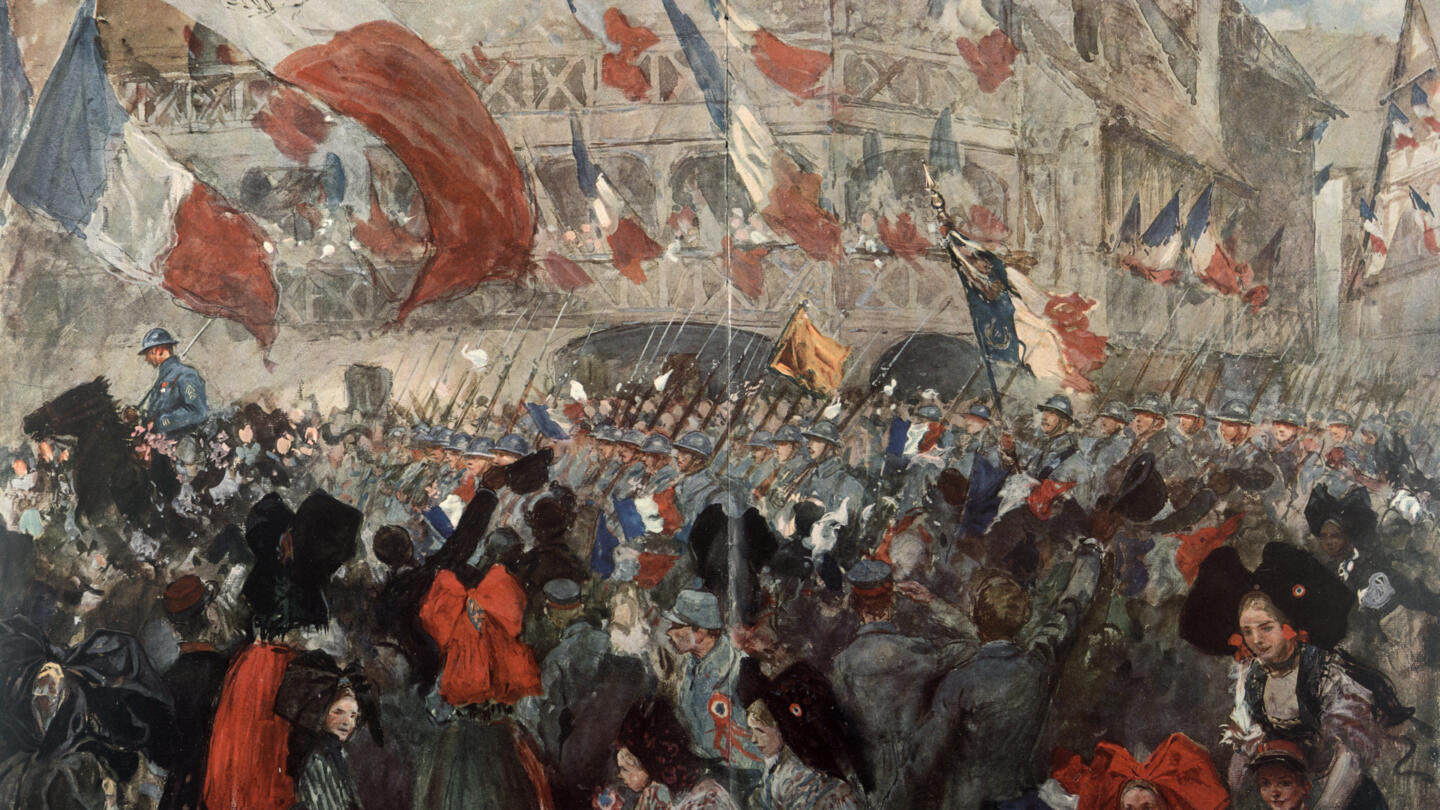
At the 11th hour on the 11th day of the 11th month of 1918, the Great War ends. At 5 a.m. that morning, Germany, bereft of manpower and supplies and faced with imminent invasion, signed an armistice agreement with the Allies in a railroad car outside Compiégne, France. The First World War left nine million soldiers dead and 21 million wounded, with Germany, Russia, Austria-Hungary, France and Great Britain each losing nearly a million or more lives. In addition, at least five million civilians died from disease, starvation, or exposure.
On June 28, 1914, in an event that is widely regarded as sparking the outbreak of World War I, Archduke Franz Ferdinand, heir to the Austro-Hungarian empire, was shot to death with his wife by Bosnian Serb Gavrilo Princip in Sarajevo, Bosnia. Ferdinand had been inspecting his uncle’s imperial armed forces in Bosnia and Herzegovina, despite the threat of Serbian nationalists who wanted these Austro-Hungarian possessions to join newly independent Serbia. Austria-Hungary blamed the Serbian government for the attack and hoped to use the incident as justification for settling the problem of Slavic nationalism once and for all. However, as Russia supported Serbia, an Austro-Hungarian declaration of war was delayed until its leaders received assurances from German leader Kaiser Wilhelm II that Germany would support their cause in the event of a Russian intervention.
On July 28, Austria-Hungary declared war on Serbia, and the tenuous peace between Europe’s great powers collapsed. On July 29, Austro-Hungarian forces began to shell the Serbian capital, Belgrade, and Russia, Serbia’s ally, ordered a troop mobilization against Austria-Hungary. France, allied with Russia, began to mobilize on August 1. France and Germany declared war against each other on August 3. After crossing through neutral Luxembourg, the German army invaded Belgium on the night of August 3-4, prompting Great Britain, Belgium’s ally, to declare war against Germany.
For the most part, the people of Europe greeted the outbreak of war with jubilation. Most patriotically assumed that their country would be victorious within months. Of the initial belligerents, Germany was most prepared for the outbreak of hostilities, and its military leaders had formatted a sophisticated military strategy known as the “Schlieffen Plan,” which envisioned the conquest of France through a great arcing offensive through Belgium and into northern France. Russia, slow to mobilize, was to be kept occupied by Austro-Hungarian forces while Germany attacked France.
The Schlieffen Plan was nearly successful, but in early September the French rallied and halted the German advance at the bloody Battle of the Marne near Paris. By the end of 1914, well over a million soldiers of various nationalities had been killed on the battlefields of Europe, and neither for the Allies nor the Central Powers was a final victory in sight. On the western front—the battle line that stretched across northern France and Belgium—the combatants settled down in the trenches for a terrible war of attrition.
In 1915, the Allies attempted to break the stalemate with an amphibious invasion of Turkey, which had joined the Central Powers in October 1914, but after heavy bloodshed the Allies were forced to retreat in early 1916. The year 1916 saw great offensives by Germany and Britain along the western front, but neither side accomplished a decisive victory. In the east, Germany was more successful, and the disorganized Russian army suffered terrible losses, spurring the outbreak of the Russian Revolution in 1917. By the end of 1917, the Bolsheviks had seized power in Russia and immediately set about negotiating peace with Germany. In 1918, the infusion of American troops and resources into the western front finally tipped the scale in the Allies’ favor. Germany signed an armistice agreement with the Allies on November 11, 1918.
World War I was known as the “war to end all wars” because of the great slaughter and destruction it caused. Unfortunately, the peace treaty that officially ended the conflict—the Treaty of Versailles of 1919—forced punitive terms on Germany that destabilized Europe and laid the groundwork for World War II.
It is my sincere desire to provide readers of this site with the best unbiased information available, and a forum where it can be discussed openly, as our Founders intended. But it is not easy nor inexpensive to do so, especially when those who wish to prevent us from making the truth known, attack us without mercy on all fronts on a daily basis. So each time you visit the site, I would ask that you consider the value that you receive and have received from The Burning Platform and the community of which you are a vital part. I can't do it all alone, and I need your help and support to keep it alive. Please consider contributing an amount commensurate to the value that you receive from this site and community, or even by becoming a sustaining supporter through periodic contributions. [Burning Platform LLC - PO Box 1520 Kulpsville, PA 19443] or Paypal
-----------------------------------------------------
To donate via Stripe, click here.
-----------------------------------------------------
Use promo code ILMF2, and save up to 66% on all MyPillow purchases. (The Burning Platform benefits when you use this promo code.)





Wonder why History.com didn’t mention the Balfour Declaration?
“World War I ends – 1918”
No, it didn’t.
war related but not ww1–
this is a short article/interview about section 60,the section of arlington set aside 4 the dead from iraq/afghanistan-
https://www.nationalgeographic.com/news/2014/10/141021-arlington-national-cemetery-iraq-afghanistan-war-ngbooktalk/
this was posted a week or so back on this site–it’s about a raid by brit commandos to destroy the docks in france that germany needed 4 it’s major battle ship–